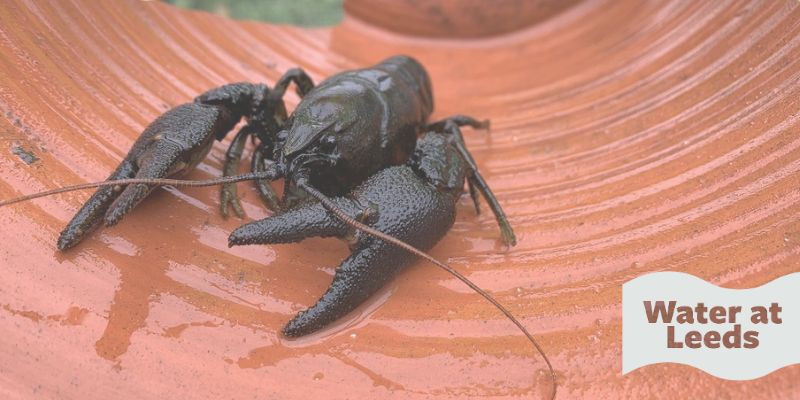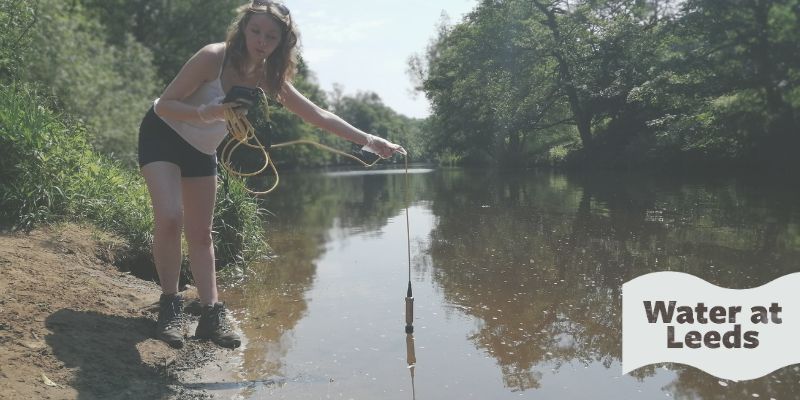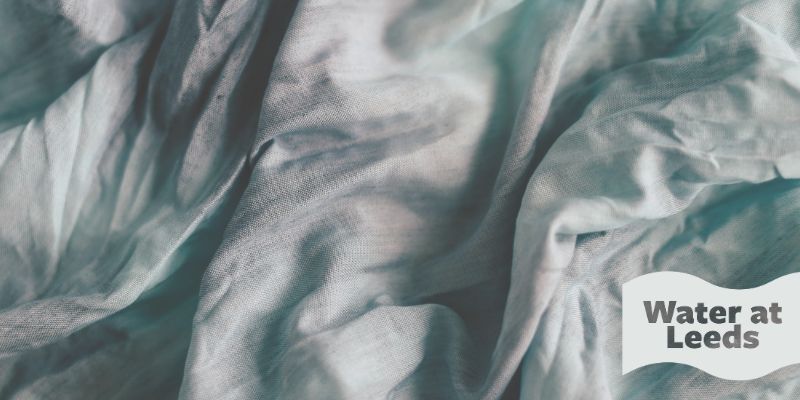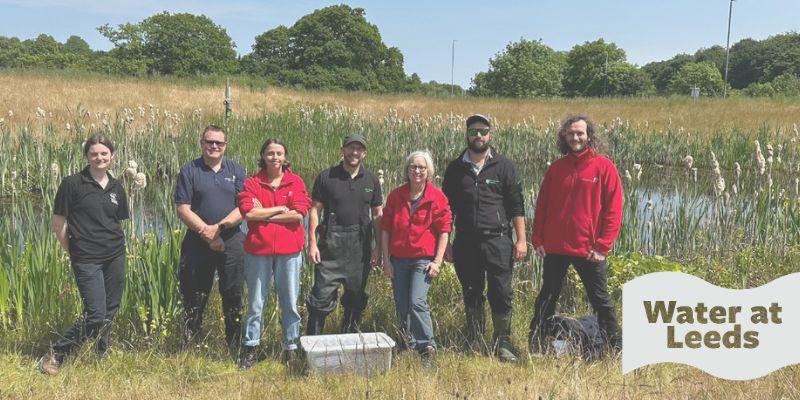Researchers from across the globe are collaborating during World Water Week 2023 to find solutions to water-related challenges we face.
Water is a complex field with lots of aspects to consider, from our oceans and freshwater, to glaciers, to our bathrooms.
Supported by water@leeds, the University of Leeds hosts over 300 water researchers whose projects run across all disciplines.
Find out about our diverse water research.
Water lands and wildlife
Protecting wetlands
Earlier in 2023, scientists from the University of Leeds and the Doñana Biological Station spoke out about a farming bill that would further deplete the fragile Doñana wetlands in Southern Spain.
In a paper titled “How Europe’s most iconic wetland could be finished off by a strawberry farming bill,” published by Nature Water, Professors Luis Santamaría from the Doñana Biological Station and Julia Martin-Ortega from the Sustainability Research Institute explained how devastating the outcomes would be.
The Doñana wetlands is one of the largest wetlands in Europe, hosting half a million migratory birds, 50 species of waterbirds and the highly endangered Iberian lynx.
The researchers’ input supports evidence-based policies to protect the wildlife and wetlands.
Read more about the Doñana wetlands.
WaterLANDS
Doñana is one of the sites included in the WaterLANDS project. Funded by the EU Horizon 2020 Programme Green Deal, this project aims to restore and protect Europe’s wetlands.
In Yorkshire, this work is coordinated by the Yorkshire Integrated Catchment Solutions Programme (iCASP). Their activities include training members of the public to be citizen scientists – to test peatlands and assess their health.
Peatlands are essential for wildlife, carbon storage and natural flood management.
iCASP is also part of the West Yorkshire Flood Innovation Programme, collaborating with five local authorities and the Environment Agency to create innovative solutions to flooding.
Sign up to the iCASP newsletter for more information about its projects.
Invasive species
Invasive species can alter the ecology of our waters. They feed on native species, compete for food and habitats and spread disease.
Dr Josie South in the Faculty of Biological Sciences has led projects that manage invasive non-native species of crayfish in the UK and internationally.

In recent news, Dr South worked with the Environment Agency to rescue native crayfish from Meanwood Beck in Leeds, as a crayfish plague was detected.
Read our Spotlight article: Managing invasive species to help tackle the global water crisis.
Global Impacts of Glacier Retreat
Glacial habitat loss
While species movement affects water quality, the reverse can also be true, as shown by researchers in the Faculty of Environment.
Professor Lee Brown and Dr Jonathan Carrivick found that when glaciers melt and retreat, the insects living there must adapt to warmer water or migrate to other areas.
As they’re at the bottom of the food chain, this impacts the entire ecosystem.
This shows the need for flexible protection in areas with changing habitats, as wildlife may move to unprotected areas due to habitat or food source loss.
Glacial lakes and flooding
As glaciers melt, they create lakes trapped at high elevation. These have the potential to breach dams and create huge floods.
Dr Carrivick has used satellite imaging and geographic information systems (GIS) to measure glacial lakes and track their growth. This will help to predict and manage flooding.
Effects of glacier retreat on local communities
Glacier retreat will affect local populations most of all. As well as the risk of floods, the way that they use the glacial water will be forced to adapt.
Many communities use the water that runs from glaciers for agriculture and infrastructure. Professor Duncan Quincey uses numerical modelling and satellite data to project the future landscapes.
He has visited the affected communities and used VR technology to show the local people what they could expect as their environment changes.
The majority of freshwater on the planet is contained within glaciers. However, running freshwater is also essential to communities and livelihoods.
Read more about GLIMR: Global Impacts of Glacier Retreat.
Freshwater
Testing rivers with communities
Professor Paul Kay, Dr Paul Hutchings and Maddy Wright are a group of researchers who support local communities to test their river water.
Maddy Wright, a Masters student in the School of Geography, tested the River Nidd’s temperature, oxygen, PH, E. Coli, nutrients and dissolved organic matter.
She shared her research at community events, allowing the public to make decisions about how to manage the river.

Maddy says: “I’m grateful that there’s a community who actively want to participate in this research.
“There are a range of issues facing the quality of water in the UK. As well as sewage and agriculture, how we consume and what we put down our drains make a difference. Our data builds a bigger picture about our water quality and how we can improve it.”
Freshwater Quality Champions
In 2022, two academics were appointed Freshwater Quality Champions by the Natural Environment Research Council (NERC).
These are Professor Pippa Chapman and Professor Joseph Holden.
They aim to “build an interdisciplinary freshwater quality community that includes researchers, practitioners and policymakers, capable of delivering impactful, transformative research to understand the major sources, pathways, transformations and interactions of pollutants in freshwater ecosystems.”
Remaking vital relations with rivers
The Water Value Research Group explore our relationships with rivers with the aim to restore the reciprocal kinships we once had with them.
They investigate how economic, technological and philosophical logics have influenced society to relate to waters as ‘things’.
Inspired by Indigenous cultures in countries such as New Zealand, the Water Value Research Group coined the term ‘Riverkin’ to illustrate their positive relationship of kinship to rivers. They explain the concept of kin as “those who nurture and contribute to one another’s life and well-being.”
Without understanding that we must take care of our waters to ensure they’re available to take care of us, we are now facing several water crises.
In their paper titled “Riverkin: seizing the moment to remake vital relations in the UK and beyond”, they argue that the UK and Europe can and must re-ignite our kinship with rivers to resolve the critical challenges that they are facing. The paper will be published in People and Nature this year.
The researchers are developing connections to partners, community groups and policymakers to share their concept and put it into practice.
Read more about the Riverkin project.
Water waste
By-products in water
The School of Computing and the School of Civil Engineering are teaming up on H2OforAll, a project funded by the European Union to reduce health risks from disinfection by-products in drinking water.
They work with consumers, policymakers and water utilities to monitor the by-products and find effective treatments.
Microfibre release from textiles
In the School of Design, a group of researchers investigate microfibre release into waterways.
The team created an improved method of testing textile laundering which has since been adopted by external agencies.
PhD researcher Alice Hazlehurst has used the method to test different materials and find out other factors that effect how much microfibre is released from washing machines.

Dr Mark Sumner, lecturer of Sustainable Fashion said: “Action to make the fashion industry more sustainable is critical.
“Objectively measuring how long clothes can last is complex and difficult because durability is affected by the type of materials and fabrics in the garment, how the clothes are made and how we wash and care for our clothes.”
They are keen to collaborate with more industry and retail partners to design more efficient materials that are attractive to consumers.
Find out more about the Arts, Humanities and Culture projects related to water.
Water, sanitation and health (WASH)
The University of Leeds’ research and education about WASH includes partnering on a five-year programme funded by the Foreign Commonwealth and Development Office (FCDO), alongside IRC-WASH, London School of Hygiene and Tropical Medicine.
The programme, titled “WASH Systems for Health” aims to end preventable deaths from dirty water supplies and unsanitary conditions. The project will focus on sanitation, water, health, nutrition and education in developing countries, particularly with families that are disadvantaged.
Professor Barbara Evans has worked on rural water supply and sanitation projects such as the post-conflict reconstruction programme for sanitation and water supplies in Afghanistan. She is now co-leading the Lancet Commission on Water, Sanitation and Hygiene (WASH), set up to increase work towards the United Nation goal of universal access to safely managed WASH services.
Student education
The Water-WISER Centre for Doctoral Training is led by Professor Barbara Evans and the School of Civil Engineering in partnership with Loughborough University and Cranfield University.
Together they run a PhD in Water and Waste Infrastructure Systems Engineered for Resilience (Water-WISER).
This aims to contribute towards the goal of universal access to drinking water, sanitation and hygiene by 2030.
water@leeds
water@leeds brings together researchers from different disciplines and career stages at Leeds. They work with partner organisations to tackle water-related challenges at a range of scales.
The institute has over 300 members and works with over 100 partners. Its members have published over 2,000 publications since 2020.
The work at water@leeds has supported 16 of the United Nation’s Sustainable Development Goals, including “No Poverty,” “Zero Hunger,” “Good Health and Well-being,” “Gender Equality,” and “Clean Water and Sanitation.

In the directors’ introduction in the forthcoming annual report, they state:
“Never has the need for interdisciplinary solutions to global water challenges been greater or more urgent. The last couple of years have borne witness to catastrophic water-induced events, from devastating floods in Bangladesh to continental European drought.
There are also local water-related concerns around pollution and environmental water resource availability in the UK. We are currently leading research and innovation activities in all these areas.
As global attention, rightly, turns towards achieving the goals established by the 2015 Paris Agreement and achieving net zero, it is as important as ever to recognise the central role water plays in this effort, and that as a society we can only achieve these targets through due consideration of water.
We are confident that water@leeds will continue to play an important international part in this effort, working with our global collaborators.
We are always open to welcoming new members, collaborators and partners.”